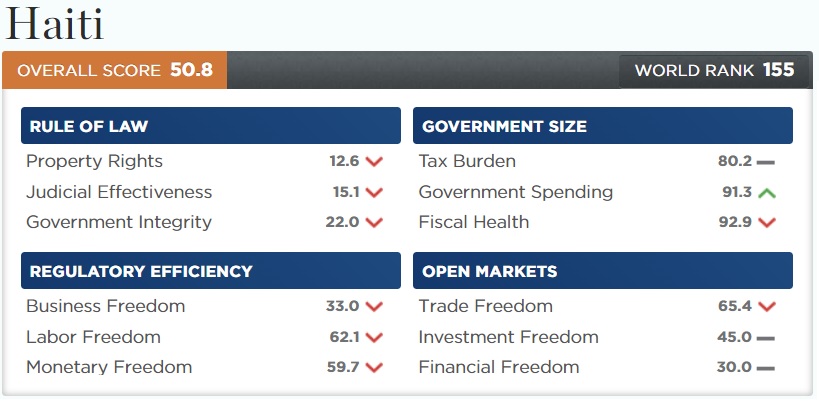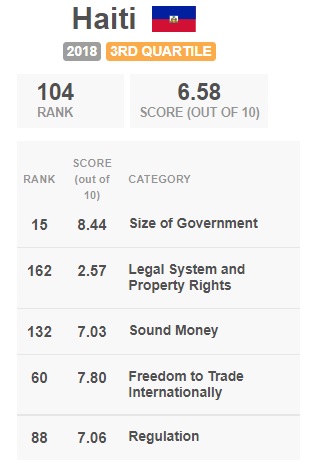Foreign aid is an expensive failure.
American taxpayers have coughed up hundreds of billions of dollars in recent decades for various government-to-government handouts, and the total is far higher when you include the aid payments of other nations and the activities of international bureaucracies.
Yet rather than helping, these handouts most likely have reduced prosperity in recipient nations.
Why? Because foreign aid subsidizes bigger government and creates a dependency culture.
And it’s not just economists who recognize this problem. A column in the New York Times by Maria Abi-Habib explores how foreign aid has backfired for Haiti.
Almost every time Haitians think their circumstances cannot get any worse, it seems the nation takes another ominous turn, and it is now teetering on the verge of a political void… In the shadow of the richest country in the world, people wonder: How could this happen to Haiti? …Haiti’s failures have not occurred in a vacuum; they have been assisted by the international community, which has pumped $13 billion of aid into the country over the last decade. But instead of the nation-building the money was supposed to achieve, Haiti’s institutions have become further hollowed out in recent years. …the money has served as a complicating lifeline — leaving the government with few incentives to carry out the institutional reforms necessary to rebuild the country, as it bets that every time the situation worsens, international governments will open their coffers… The aid has propped up the country and its leaders… The nation-building exercises that the United States and its international partners have embarked upon in Haiti and around the world have done little to create functioning states, instead creating a system where questionable actors with little national support…are propped up.
I’m tempted to say that the headline should be changed to “Haiti Still Despairs Because of $13 Billion in Foreign Aid.”
But I’ll instead make the more modest point that the Ms. Abi-Habib is correct about Haiti needing state capacity (properly defined, of course).
But that’s just part of the solution. Haiti also needs more economic liberty.
According to the most-recent edition of Economic Freedom of the World, the country has a bad score of 6.58 on a 1-10 scale, which places it #104 out of 162 nations.
And that’s actually an exaggeration because Haiti gets a misleadingly good score (#15) for fiscal policy.
Yes, the overall level of taxes and spending is modest, but that’s not a policy choice. It’s because the government is too incompetent to administer a tax system.
The data from the most-recent edition of the Index of Economic Freedom also shows that Haiti has bad policy, with an overall score of 50.8 on a 0-100 scale, which means the country is #155 out of 178 nations
That’s not quite as bad as Venezuela, but it’s still a horrible score.

The obvious takeaway is that foreign aid is bad for taxpayers and bad for recipient nations.
Free markets are the recipe for growth and prosperity. Government-to-government handouts not only don’t work, but they seem to make things worse.
P.S. Allowing free trade between the U.S. and Haiti would be a very practical way of helping.
———
Image credit: Oxfam East Africa | CC BY 2.0.




